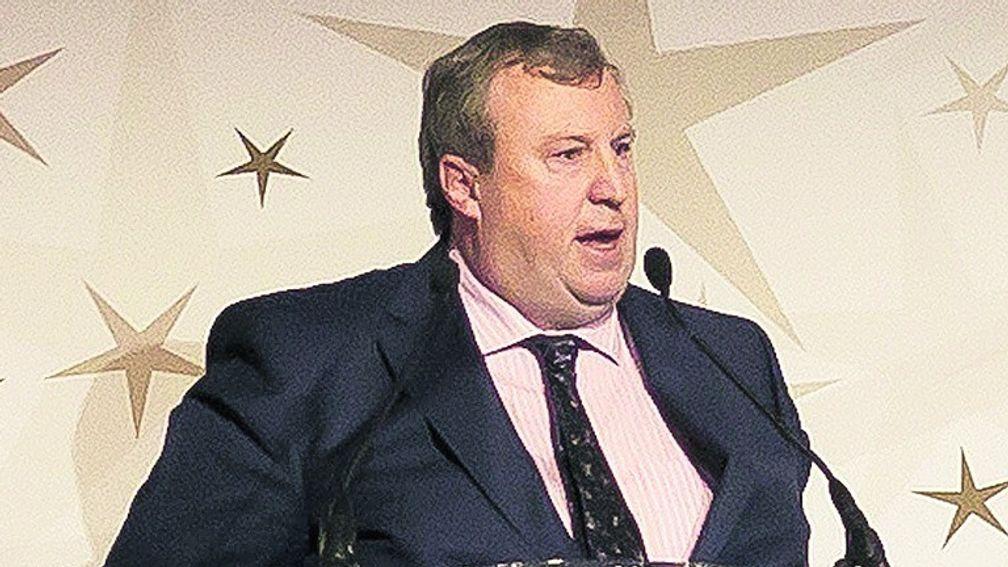Brexit proposals given positive hearing but issue remains a 'real problem'

Solutions to the problem of free movement of horses after Brexit have met with a positive response, but getting the industry's voice heard at the highest level has not been easy, an international conference was told on Monday.
Horse Racing Ireland chief executive Brian Kavanagh told delegates at the 52nd International Conference of Horseracing Authorities in Paris that Brexit was a "real problem" for Europe, particularly for Ireland, which is more exposed to its effects than even the United Kingdom.
Much concern about Brexit rests on the issue of free movement of horses between the UK, Ireland and France, which will cease once Brexit happens unless a successor to the Tripartite Agreement between the three countries can be found.
Kavanagh said: "It's difficult for us in Ireland to see any benefits in Brexit, but if there's one very minor benefit it's that it has forced three countries in Europe – Ireland, France and Britain – to have a long, hard look at the systems in which we've operated the movement of horses between our countries over the years.
'Food production and farming'
"What I've certainly realised in this process is you cannot take for granted the understanding or the appreciation of government, and authorities and agriculture ministries in particular, of the needs of the horse industry.
"The reality is the agriculture ministries are primarily concerned about food production and farming issues, and even in a country like Ireland the horse can be a little bit of a curiosity, and particularly so when you go to the EU."
Kavanagh pointed out that, from the 81 runners in the six Group 1s at Longchamp on Arc day, 42 were from Britain and Ireland, and that when the breeding season started 1,500 to 2,000 mares will travel from continental Europe to visit stallions in Ireland via the UK land bridge, movements facilitated by the tripartite agreement.
"When Brexit occurs those agreements fall away," he added. "From our point of view Ireland is probably the most exposed country in relation to Brexit, even more so than the UK, I'd say, because of our isolated location."
Kavanagh said representatives of the three countries had proposed a new system centred on a category of high-health horse status that could be reflected in EU law and then be applied to "third countries" such as the UK.
"The proposal has had a positive first hearing," he said. "I think at the moment the situation in regard to Brexit is everyone is focused on the split up and divorce, rather than what will happen after that, and it's coming very quick down the road."
Kavanagh said there was no concern about equine health standards in the UK once Brexit happens.
However, he concluded: "I'm sure for anyone who's not involved Brexit is a curiosity at best, but it's a real problem for us in Europe."
Members can read the latest exclusive interviews, news analysis and comment available from 6pm daily on racingpost.com
Published on inNews
Last updated
- Join Racing Post Members' Club for the very best in racing journalism - including Patrick Mullins' unmissable trip to see Gordon Elliott
- Racing Post Members' Club: 50% off your first three months
- Join the same team as Ryan Moore, Harry Cobden and other top jockeys with 50% off Racing Post Members' Club
- 'It’s really exciting we can connect Wentworth's story to Stubbs' - last chance to catch master painter's homecoming
- The jumps season is getting into full swing - and now is the perfect time to join Racing Post Members' Club with 50% off
- Join Racing Post Members' Club for the very best in racing journalism - including Patrick Mullins' unmissable trip to see Gordon Elliott
- Racing Post Members' Club: 50% off your first three months
- Join the same team as Ryan Moore, Harry Cobden and other top jockeys with 50% off Racing Post Members' Club
- 'It’s really exciting we can connect Wentworth's story to Stubbs' - last chance to catch master painter's homecoming
- The jumps season is getting into full swing - and now is the perfect time to join Racing Post Members' Club with 50% off